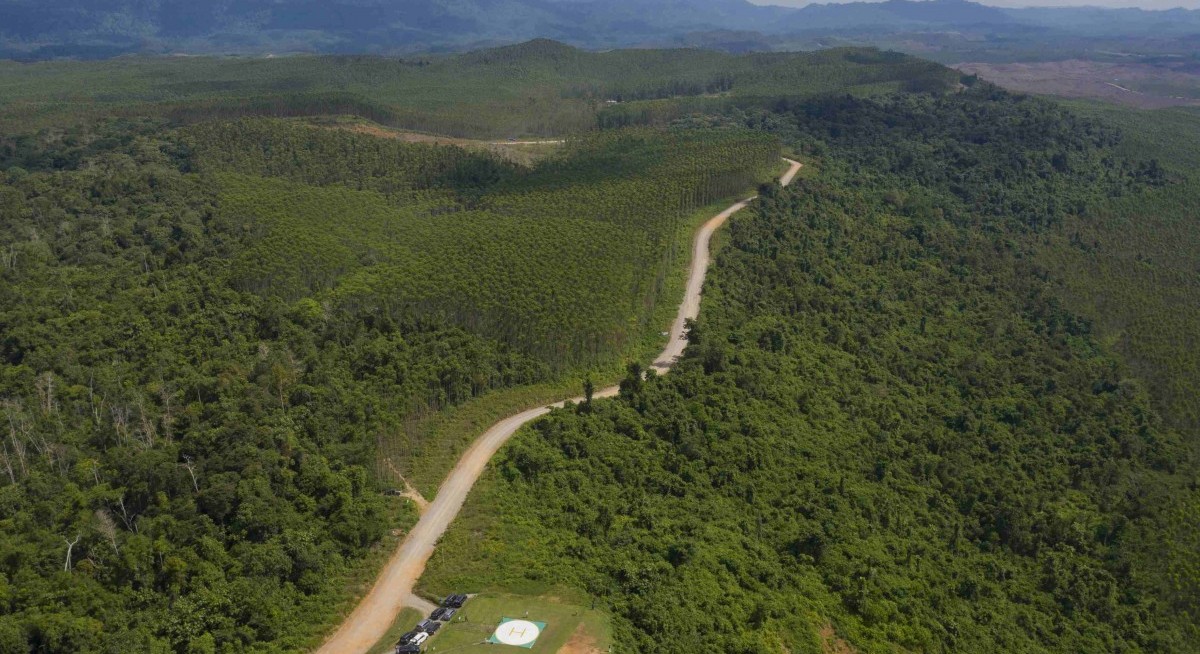Despite scattered successes, DPI and climate actors often operate in parallel, not in partnership. This siloed approach is not just a missed opportunity — it’s an imperative to overcome.
Barriers abound: low visibility of successful, replicable DPI-climate use cases; lack of practical guidance for governments; and fragmented or under-resourced DPI stacks in many countries. Innovators, too, struggle to access or build on core infrastructure components.
As a result, most DPI remains disconnected from climate agendas, and innovators lack clear pathways to apply it effectively.
DPI successes from around the world
See also: Trump withdraws US from dozens of global organisations on climate actions
Despite these hurdles, powerful examples from around the world offer a clear template for action.
In India, a DPI solution called Forest Stack is transforming forest conservation with its first instantiation in the state of Rajasthan, called Digivan. By aggregating and digitising biodiversity data, it supports forest governance, emissions tracking, and conservation finance — projected to generate up to US$22 billion ($28 billion) annually by 2030.
Imagine the implications of such Stacks for megadiverse Southeast Asian nations like Indonesia, Malaysia and the Philippines.
See also: Fourteen global trends set to shape the climate in 2026
On a household level, Singapore’s Climate Friendly Households Programme uses its national digital identity system, Singpass, to securely distribute climate vouchers. This enables households to purchase energy- and water-efficient appliances, directly linking DPI to individual climate action.
In Brazil, the CAR (Rural Environmental Registry) provides invaluable monitoring of critical deforestation. This mandatory registry integrates environmental information from rural properties, ensuring compliance with environmental laws, streamlining reforestation efforts, and supporting emissions reporting. It offers a clear pathway to integrate government and non-governmental organisation (NGO) efforts.
For global action, the CAD Trust stands out. This decentralised metadata platform links, aggregates, and harmonises carbon registry data, offering a powerful tool to enhance transparent accounting under Article 6 of the Paris Agreement — crucial for tracking and ultimately reducing global emissions.
Southeast Asia at frontline of climate vulnerability
Southeast Asia stands at a critical juncture, uniquely positioned to demonstrate the transformative power of DPI in addressing the climate crisis.
The region is a global climate hotspot, with countries across the region frequently battered by intensifying floods, typhoons and droughts, incurring significant economic losses and impacting millions of lives.
For instance, the Philippines alone faces estimated annual asset losses of around $1 billion and consumption losses of around $3 billion due to climate disasters, with over 6 million people affected yearly.
Sink your teeth into in-depth insights from our contributors, and dive into financial and economic trends
This urgent vulnerability is mirrored by rapid digital growth and widespread digital adoption across the region.
This dual reality makes Southeast Asia an ideal testing ground for DPI-powered climate innovation, allowing for solutions that leverage robust digital identity systems and interoperable data to enable anticipatory responses, streamline aid delivery, and enhance emissions tracking.
The region’s pressing needs and its readiness to embrace digital transformation make it pivotal for demonstrating DPI’s profound impact on global climate resilience and sustainable development.
Catalysing a DPIxClimate movement
While DPI is arguably underutilised, the global examples show us the outlines of what is possible — we are barely scratching the surface. DPI systems already exist in many countries; what’s missing is their dedicated application to climate outcomes, adaptation and mitigation.
Policymakers, innovators and funders must work together to unlock DPI’s untapped potential for the planet and the people that call it home.
Recognising this critical gap, a powerful coalition has emerged to catalyse the application of DPI for urgent climate action. The DPI for People & Planet (DPI4PP) Innovation Challenge — co-led by the Japan International Cooperation Agency (JICA), Co-Develop, the Centre for Digital Public Infrastructure (CDPI), the Gates Foundation, and Boston Consulting Group (BCG), in partnership with the COP30 Presidency — represents one such effort.
This collaborative initiative is designed to bridge the gap between climate action and DPI, fostering practical use cases and scaling innovation in vulnerable regions. The DPI4PP Innovation Challenge stands as the first of its kind, specifically focusing on the critical intersection of people, the planet and DPI.
It targets start-ups and innovators, empowering them to develop inclusive, scalable and impactful solutions across vital sectors such as energy, disaster management, agriculture, forestry and health. Participants are encouraged to submit novel concepts or innovative strategies that leverage digital public infrastructure to enhance existing solutions.
The DPI4PP Challenge represents a unique and crucial opportunity to activate digital infrastructure for climate resilience and innovation.
We strongly encourage innovators, especially those from the global south, to contribute their expertise and register their proposals by the deadline of June 27, 2025.
Top five finalists will gain significant visibility and will have the opportunity to present their innovations at COP30 in Brazil.
The foundational blocks of digital public infrastructure are in place. But infrastructure alone is not enough. As climate impacts accelerate, we must pair ambition with action — and proactively unlock DPI’s full potential as a platform for innovation and equity.
The future lies in seamlessly connected data, facilitated by Unified Data Highways (UDH) — the next frontier of DPI.
By enabling consent-based, interoperable data exchange, UDH will supercharge transparency and inclusion across sectors. From safeguarding our forests to responding to crises, the true power of data emerges not just in its collection, but in how we connect and leverage it, together, for the planet and its people.
Yushi Nagano is head of JICA’s DxLab, and Varad Pande is partner and director at BCG




